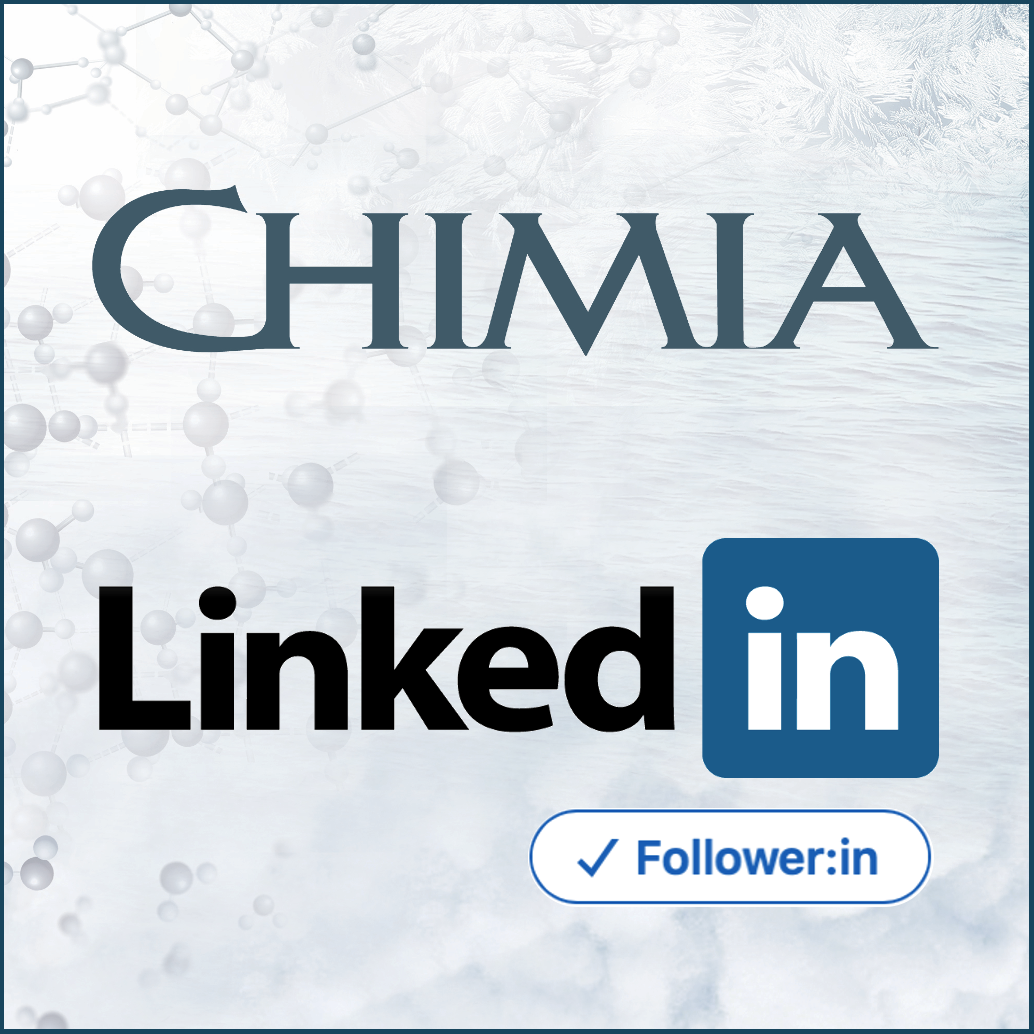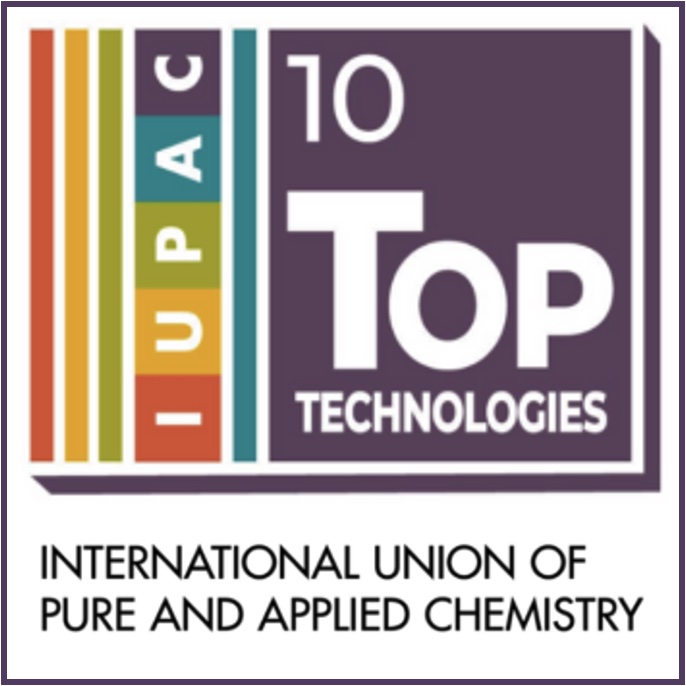EuChemS Magazine, March 2024
EuChemS News, Policy News, Events, Awards
Find our monthly compilation of chemistry- and science-related European policy developments in this newsletter! You will also find EuChemS' activities and news here. Take a look at our Headline Stories or Read EuChemS Magazine online!
EuChemS News
- 2023 EuChemS Yearbook released
- EuChemS Office hosts Executive Board Meeting
- EuChemS attends first science policy meetings of 2024
Policy News
- ERC holds event with Nobel Laureates
- EFSA Director discusses past 10 years with ENVI
- Policy Essay: EE2024 – A quick look from a science policy perspective
Read the full magazine on: https://www.magazine.euchems.eu/
David Spichiger, SCS
25.03.2024

Follow CHIMIA on LinkedIn
 CHIMIA, the SCS' scientific journal for chemistry and membership journal is now also on LinkedIn and will use this channel to announce the publication of the latest issues and other news. Stay in touch with us and keep informed about Chimia's activities by following us!
CHIMIA, the SCS' scientific journal for chemistry and membership journal is now also on LinkedIn and will use this channel to announce the publication of the latest issues and other news. Stay in touch with us and keep informed about Chimia's activities by following us!
Website of CHIMIA: https://chimia.ch
LinkedIn Profile: https://www.linkedin.com/company/chimia-journal/
David Spichiger, SCS
21.03.2024
EuChemS releases 2023 Yearbook
![]() The 2023 EuChemS Yearbook was released in February. It contains all the activities of EuChemS over the course of the last year.
The 2023 EuChemS Yearbook was released in February. It contains all the activities of EuChemS over the course of the last year.
EuChemS was involved in numerous scientific and science-policy related undertakings in 2023. The yearbook provides descriptions of policy related advisory groups and events of EuChemS – including, but not limited to stakeholder group participations and policy workshops -, as well as its efforts to strengthen the European chemistry community. It also lists EuChemS Science Communication initiatives and data, as well as information on the constitution of the 2023 Executive board, Divisions, Member Societies and secretariat.
The production of the yearbook was coordinated by the EuChemS Secretariat, but many more members of EuChemS contributed to ensuring the high quality and accuracy of the publication.
We are delighted to invite you to read our 2023 yearbook, and we would be happy to hear about any feedback you may have!
Céline Wittwer, SCS | Marton Kottmayer, EuChemS
28.02.2024
EuChemS Magazine, February 2024
EuChemS News, Policy News, Events, Awards
Find our monthly compilation of chemistry- and science-related European policy developments in this newsletter! You will also find EuChemS' activities and news here. Take a look at our Headline Stories or Read EuChemS Magazine online!
EuChemS News
- EuChemS attends first science policy meetings of 2024
- EuChemS Division of Glycoscience invites delegates to join
- EuChemS participated in Young Chemists’ meeting
Policy News
- Provisional agreement reached on mercury ban
- Commission withdraws law on chemical pesticide use after protest
- European Parliament committees met Belgian Presidency to discuss science policy
- Horizon 2020 evaluation releases amidst budget cuts for the current programme
Read the full magazine on: https://www.magazine.euchems.eu/
David Spichiger, SCS
15.02.2024

Top ten emerging technologies in chemistry: Call for proposals for 2024
 The International Union of Pure and Applied Chemistry has released its call for proposals to identify the top ten emerging technologies in chemistry with the results to be announced in 2024.
The International Union of Pure and Applied Chemistry has released its call for proposals to identify the top ten emerging technologies in chemistry with the results to be announced in 2024.
This initiative began in 2018 in recognition of IUPAC’s Centenary in 2019, and while it was created to kick-off IUPAC’s anniversary year in a very visible way, the end goal was to showcase the value of Chemistry (and chemists!) and to inform the general public as to how the chemical sciences contribute to the well-being of Society and the sustainability of Planet Earth. A feature article presenting details on each of the selected 2023 technologies was published in the October 2023 issue of IUPAC magazine Chemistry International as well as in the De Gruyter Conversations, Science & Technology blog post (posted 18 Dec 2023).
The call for the 2024 proposals is now open. Anyone can submit one or more proposals – this call for proposals is open to the global science community as well as to the general public.
Call for nomination – deadline 31 March 2024
What is an “Emerging Technology?”
An “Emerging Technology” is one that is between a new scientific discovery and a fully-commercialized technology. It should involve a solid understanding of the technology, some type of prototype, or even better some start-ups working to commercialize the technology. But most importantly, the technology needs to be exciting, have the capacity to open up new opportunities in chemistry and beyond, and most importantly, help to solve major global problems – the focus of IUPAC’s vision and mission. The term “chemistry” is used in its broadest sense, including material science, nanotechnology, and biochemistry. Bottom line, an emerging technology is a discovery that hovers between an embryonic “Eureka” moment in the lab and an industrial application.
This initiative is to help to raise chemistry’s profile and reinforce its essential role in the advancement of science and technology.
For more information, contact Fabienne Meyers, IUPAC Associate Director and Editor, Chemistry International ()
<iupac.org/what-we-do/top-ten/>
David Spichiger, SCS
12.02.2024
Page 9 of 298

